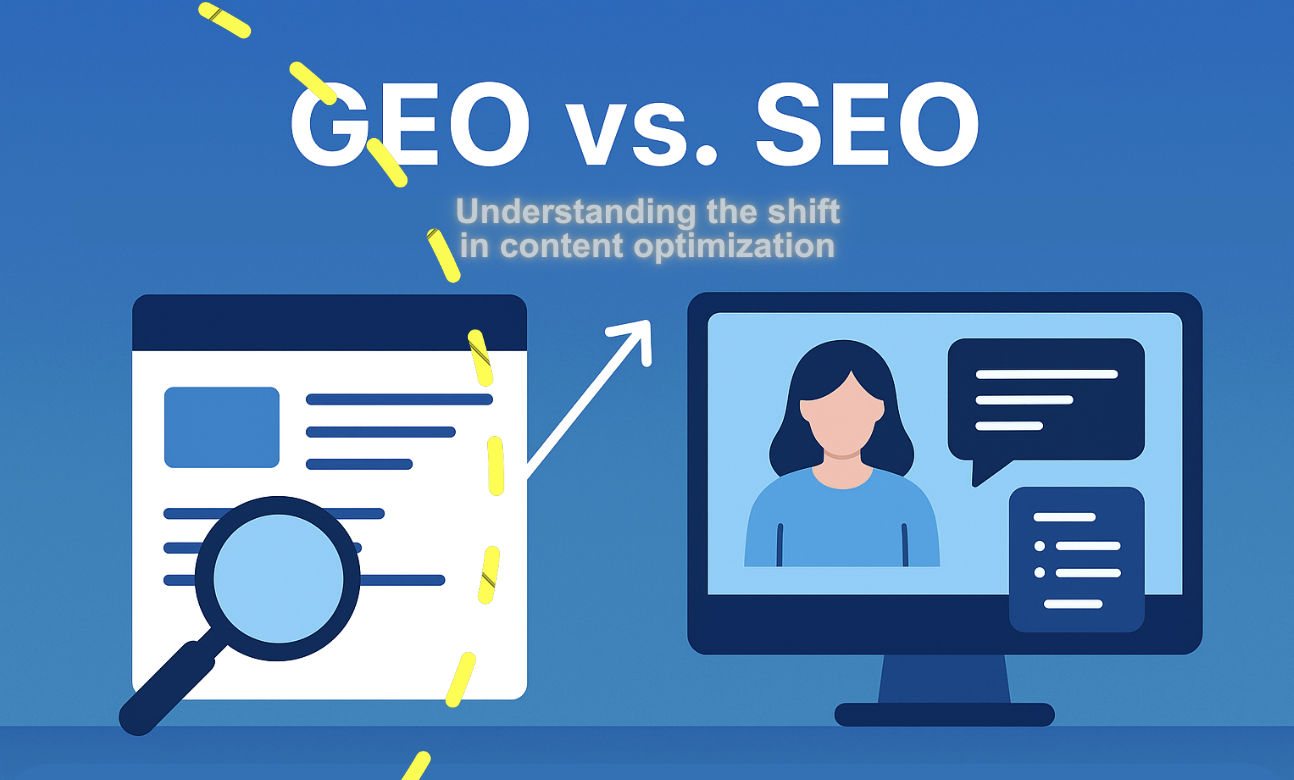
GEO vs. SEO: Is Generative AI Rewriting the Rules of Online Visibility?
By Doing Business International | September 30, 2025
In the ever-changing world of digital marketing, a new acronym is gaining attention: GEO - Generative Engine Optimization. While SEO (Search Engine Optimization) has long been the cornerstone of online visibility, GEO is emerging as the next frontier for businesses that want to stay visible in the era of AI-powered search and generative engines like ChatGPT, Google Gemini, Perplexity, and Claude.
What is GEO?
Generative Engine Optimization (GEO) refers to the strategies and techniques that help ensure your brand’s content is not just indexed by search engines but cited, referenced, or featured in generative AI responses. Instead of competing for a top spot on Google’s search results page, the goal is to become part of the actual AI-generated answers that users now increasingly rely on.
GEO vs. SEO: Key Differences
• SEO focuses on ranking higher on search engine results pages (SERPs) through keywords, backlinks, and site authority.
• GEO focuses on making your content AI-friendly, structured, and trustworthy so that generative engines select it when creating answers.
• SEO = Get Found. GEO = Get Featured.
Why GEO Matters Now
With AI Overviews, ChatGPT search plugins, and generative assistants changing the way people find information, traditional SEO alone isn’t enough. Studies and industry reports from Forbes (May 2025) and Search Engine Land (August 2025) emphasize that companies are shifting budgets and strategies to include GEO, ensuring their content is visible in AI-driven discovery.
Academic research, including the original GEO paper (Nov 2023) and the latest study (Sept 2025), shows that optimized content can increase its chance of being cited by AI by up to 40%. That’s a massive advantage in an increasingly competitive digital space.
Best Practices for GEO Success
1. Structure Your Content for AI
Use clear headings, bullet points, lists, TL;DR summaries, and schema markup. AI models prefer structured, digestible data.
2. Authority & Trust Signals
Build credibility through third-party mentions, backlinks from authority sites, and verified data sources. AI systems reward reliability.
3. Domain-Specific Relevance
Tailor your GEO strategy depending on your sector (e.g., finance, health, e-commerce). Different AI engines weigh domains differently.
4. Optimize for Extractability
Make sure your content is written in a way that’s easy for AI to quote or summarize without distortion.
5. Track AI Citations
Go beyond Google Analytics. Start monitoring AI citation frequency, share of voice in AI responses, and generative appearance scores.
How the World is Responding
• Agencies: SEO firms are rebranding as GEO specialists, offering AI citation tracking and LLM optimization services.
• Startups: New GEO tools are emerging to help brands tailor content for AI.
• Content creators: Publishers are rewriting content to include concise summaries and FAQs to make it AI-ready.
• Critics: Some caution against over-optimization, warning it could lead to manipulative practices or echo chambers.
The Future of GEO and SEO
SEO is not dead, but it is evolving. The best approach is a hybrid strategy: SEO foundations (keywords, site health, user experience) combined with GEO tactics (authority, structure, AI visibility). Brands that master this dual approach will dominate both traditional search and AI-driven discovery.
Key Takeaway:
GEO is not just a buzzword, it’s the new standard for digital visibility. Businesses that adapt now will be the ones featured in tomorrow’s AI-driven answers.
If you want to future-proof your brand and learn more about Generative Engine Optimization, our experts at Doing Business International can help guide you through the transition from SEO to GEO.
Latest Articles
-
Banking for Token Issuers in 2026: Why RWA Is the New Gold Standard
January 9, 2026
-
2025 in Review: Lessons Learned and the Blueprint for 2026
December 31, 2025
-
Christmas 2025: How Holiday Demand Can Kick‑Start Your Global Expansion in 2026
December 24, 2025
-
Open Bank Account for a Crypto Broker: 2026 Guide
December 17, 2025
-
Open Bank Account for a Crypto Exchange Industry: 2026 Guide
December 15, 2025